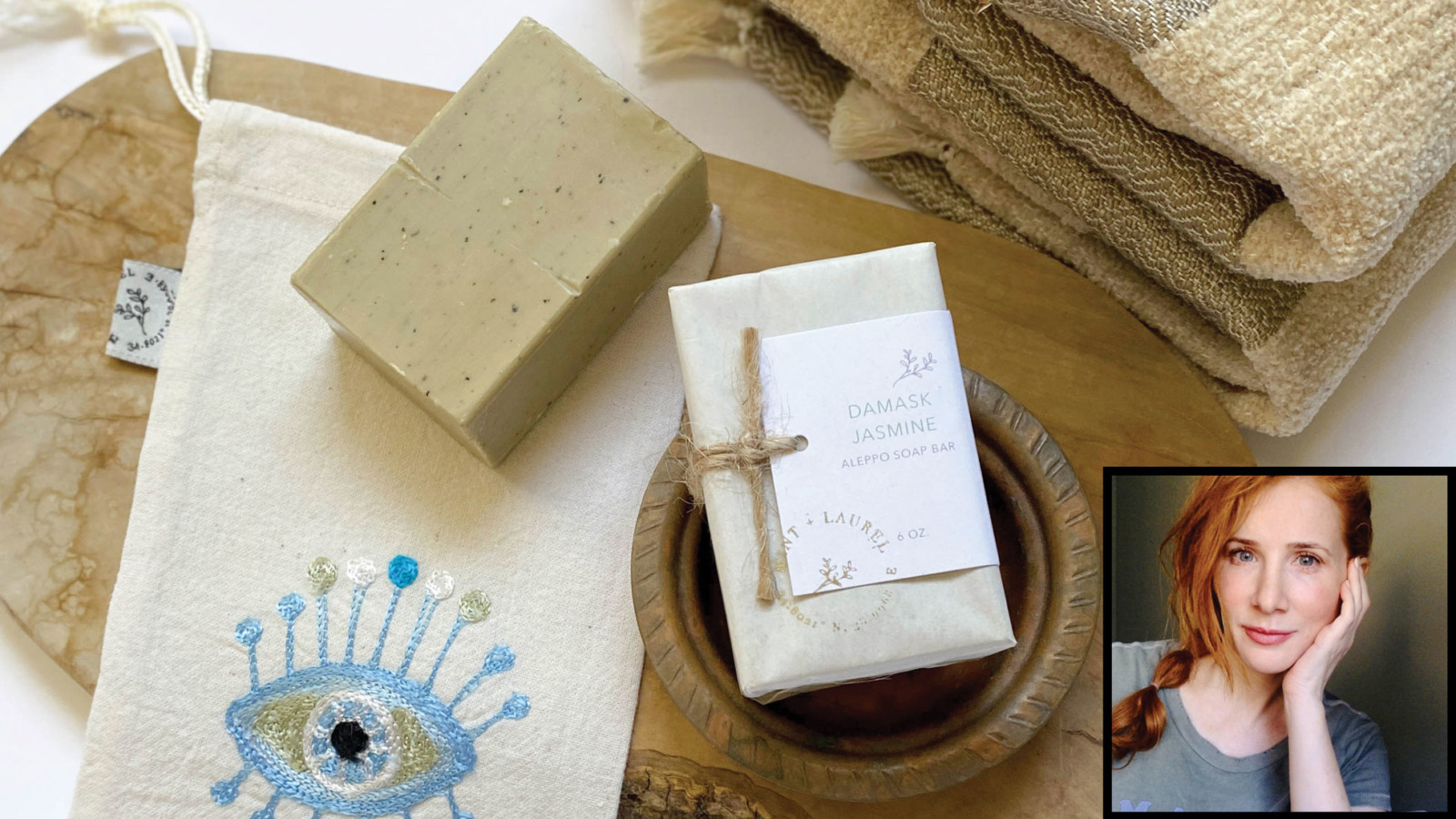While supporting artisans, Kinda Hibrawi ’96 aims to preserve ancient Syrian craft.
When Kinda Hibrawi ’96 catches the scent of laurel bay leaf soap, she’s transported to her hometown, Aleppo, Syria. “The fresh, clean scent reminds me of my grandmother,” she says. To support the continuation of that ancient soap-making tradition, Hibrawi co-founded Mint + Laurel, which imports artisan-crafted, vegan, organic soaps made with traditional Syrian ingredients and essential oils—Damask Jasmine and Rose, Kassab Bay Leaf, Aleppo Tulip, and Amber Musk with Oud. One bar takes a year to cure. The company also imports sumptuous-looking organic cotton textiles woven by hand by Abdullah Al Madani, the last weaver still working in Syria. A 10-minute documentary, “The Last Weaver of Hama,” tells his story; it’s posted at the Mint + Laurel website, mintandlaurel.com.
Founded in 2019 by Hibrawi and fellow Syrian American Rama Chakaki, Mint + Laurel works with artisans in countries in conflict, aiming to bring high-quality products to a U.S. market, while offering a steady source of income to the makers. The company recently earned a fellowship from Nest, a nonprofit supporting the responsible growth and creative engagement of artisans in support of greater gender equity and economic inclusion. The program will provide mentorship, educational webinars, and an extensive network in the retail industry for Mint + Laurel.
No stranger to making a difference, Hibrawi, who is also a working artist and painter, co-founded and led educational and creative-therapy programs for displaced Syrian refugees on the Syrian-Turkish border. Between 2013 and 2015, the programs, under the Karam Foundation, served more than 4,000 Syrian refugee children and youth in workshops led by more than 130 international mentors. The United Nations named her a 2012 Global Thinker and Influencer. In 2014, she earned the Williston Northampton Medal, the school’s highest award for service to humanity.
While empowering artisans is an important part of her work, a second, broader mission, she says, is shifting how people think about areas undergoing political conflict. Instead of the “incomplete” picture we get of war-torn places from media, she hopes to show that there is a rich history of craftsmanship and culture in these areas that is worth preserving.

